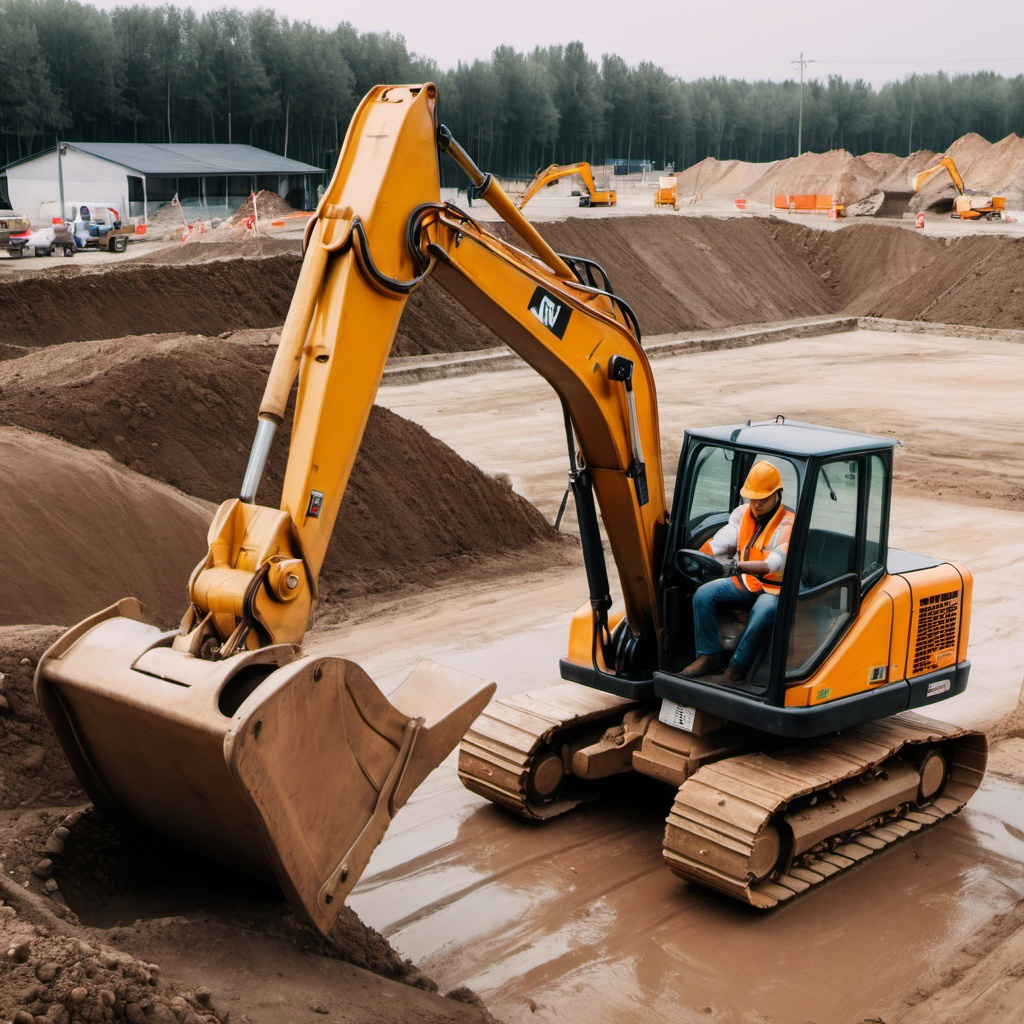Excavator and heavy machinery jobs offer lucrative career paths for individuals with the right skills and certifications. From construction projects to mining operations, these roles are in high demand, with opportunities for growth and specialization.

What Does a Heavy Machinery Operator Do?
Heavy machinery operators play a critical role in industries such as construction, mining, and infrastructure development. They are responsible for operating equipment like excavators, bulldozers, and loaders to move materials, dig trenches, and perform other essential tasks. These professionals ensure projects are completed efficiently and safely.
Operators typically work with machinery such as:
- Excavators: Used for digging, material handling, and demolition tasks.
- Bulldozers: Ideal for clearing land and pushing heavy loads.
- Loaders: Used to move materials like soil, gravel, and debris.
- Cranes: For lifting and transporting heavy materials.
To explore job opportunities as a heavy equipment operator, visit platforms like Indeed, where hundreds of positions are regularly posted.
How to Get Your Excavator License
Operating heavy machinery requires proper licensing and certifications to ensure safety and compliance with industry standards. The process to obtain an excavator license varies by region but generally includes the following steps:
- Enrolling in a recognized training program that provides hands-on experience with excavators.
- Learning about equipment safety, maintenance, and operational techniques.
- Passing written and practical exams to demonstrate your skills.
Some training centers also offer courses tailored to specific brands of equipment, such as CASE Construction Equipment, which specializes in cutting-edge machinery.
Certification programs often focus on safety standards established by organizations like OSHA (Occupational Safety and Health Administration) in the United States. These certifications not only validate your skills but also make you a more competitive candidate in the job market.
Opportunities in Heavy Machinery Operating Jobs
Heavy machinery jobs span multiple industries, offering both entry-level and advanced positions. Whether you’re new to the field or have years of experience, there’s likely a role that fits your skillset. Common job types include:
- Construction Equipment Operator: Operating machinery for building roads, bridges, and commercial properties.
- Mining Equipment Operator: Working with large-scale machinery to extract minerals and resources.
- Specialized Equipment Operator: Operating niche machinery for tasks like tunneling or forestry work.
For a comprehensive list of job openings, check out platforms like Indeed, where companies regularly post opportunities for heavy machine operators.
What Skills Are Needed to Succeed as a Heavy Machinery Operator?
While technical training is essential, successful machinery operators often possess additional skills that set them apart:
- Attention to Detail: Ensuring tasks are completed precisely and safely.
- Problem-Solving Abilities: Troubleshooting equipment issues or finding efficient ways to complete tasks.
- Physical Stamina: Handling physically demanding tasks and long shifts.
- Communication Skills: Coordinating with team members to ensure smooth operations.
These soft skills complement the technical expertise gained during formal training programs.
Why Choose a Career in Heavy Machinery Operation?
Heavy machinery operation offers several benefits, making it an attractive career choice:
- High Demand: As infrastructure projects expand globally, the demand for skilled operators continues to rise.
- Competitive Salaries: Operators can earn significant income, with opportunities for overtime and specialized roles.
- Career Growth: With experience, operators can advance to supervisory roles or specialize in high-demand equipment.
Moreover, companies like CASE Construction Equipment offer access to the latest machinery, ensuring operators work with state-of-the-art tools.
How to Start Your Career in Heavy Machinery Operation
Getting started in this field doesn’t have to be overwhelming. Follow these steps to launch your career:
- Research Training Programs: Enroll in a program that offers comprehensive instruction and certification.
- Gain Hands-On Experience: Seek internships or apprenticeships to practice operating equipment in real-world scenarios.
- Apply for Entry-Level Positions: Begin with roles that allow you to build experience and gradually advance to more specialized jobs.
Check job boards like Indeed for entry-level openings that match your qualifications.
Advancing Your Career in Heavy Machinery
Once you’ve gained initial experience, consider these strategies for career growth:
- Specialize in High-Demand Equipment: Learning to operate advanced machinery, such as cranes or tunnel boring machines, can significantly boost your earning potential.
- Pursue Further Certifications: Additional certifications in areas like safety management or equipment repair can open doors to higher-level positions.
- Take on Leadership Roles: Transitioning to supervisory or managerial roles allows you to oversee projects and teams.
By continually building your skills and experience, you can enjoy long-term success in the industry.
Is Heavy Machinery Operation Right for You?
A career in heavy machinery operation requires dedication, technical skills, and a willingness to learn. If you enjoy working with your hands, solving problems, and contributing to large-scale projects, this could be an excellent fit for you. With the growing demand for skilled operators, now is the perfect time to explore opportunities in this field.




